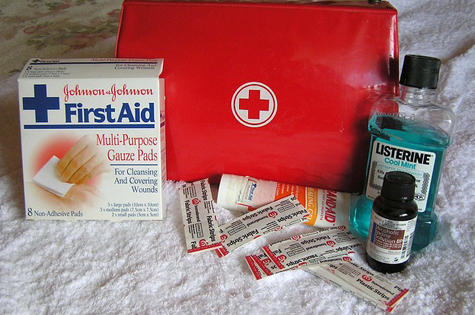1. Make sure you’re stocked up
The number one thing you need to do is make sure you have all the medications you need for your trip and doing the necessary stock up. This may mean running to the pharmacy to pick up those extra band aids, pain medication or prescriptions. But before you make that last-minute dash, check what medications are empty or expired at home and take them with you to the pharmacy. Throwing expired or unwanted medicines in the bin or down the drain is damaging to the environment and could leave these in plain sight to your children. The pharmacy can dispose of your medicines safely and correctly through the RUM initiative and make sure that they aren’t posing any threat in your home.
2. Don’t forget the basics
It’s so easy to remember all your prescription medicines but forget the basics of medicine kit packing for travel. Make sure you have things like band aids, antihistamines and travel sickness medication. These things can save you in a tricky situation, especially if you are somewhere remote. You also must not forget your health insurance details, and a letter from your doctor of the medications you take. This is very important in case there are regulations in certain
countries on your medications or people need to know what you take in an emergency.
3. Think about your carry on
If you’re travelling for a long period of time, it’s worth packing some essentials in your carry on in case your luggage gets lost or you get delayed. It’s always useful to have double ups of things like pain medication, antihistamines, hand sanitiser, moisturiser and anti-diarrhoea medication to name a few. Remember that if you are travelling overseas you must stick to the 100ml rule for liquids.
4. Have age appropriate versions
If you are travelling with small children, remember to have age appropriate versions of medication. This includes things like children’s paracetamol, children’s sunscreen, children’s insect repellent, teething medication and children’s antihistamine. It’s also always helpful to have a thermometer and tweezers for checking your child’s temperature and removing any splinters/sharp objects.
5. Know your location
Knowing what the weather is going to be like is vital to what you pack in your medicine kit. If it’s going to be cold, things like a chapstick, moisturiser and even sunscreen when you’re in the snow will save you. If it’s going to be hot, things like rehydration solutions, sunscreen, aloe vera gel, and a topical solution for heat rash can be very beneficial for beating the heat. And if its tropical, things like mosquito repellent and calamine lotion will help you with those pesky bug bites.








 Agree (0)
Agree (0) Disagree (
Disagree (









__small.png)










